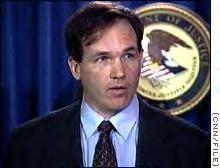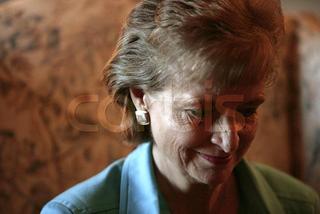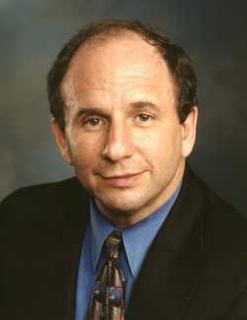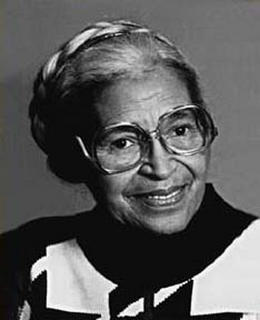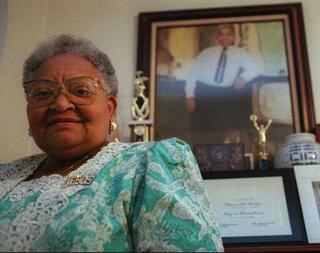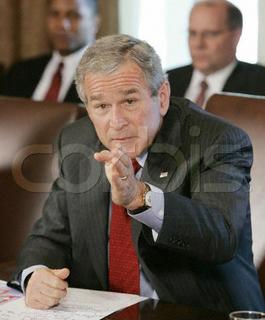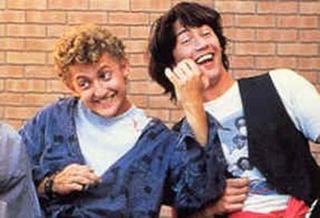A big thanks to both Frank Rich and Nicholas Kristof for wanting to peel back Dick Cheney's cover to reveal all the sludge underneath, much of which ended up on Scooter. There's bound to more hidden in the muck. The New York Times
October 30, 2005
Op-Ed Columnist
One Step Closer to the Big Enchilada
By FRANK RICHTO believe that the Bush-Cheney scandals will be behind us anytime soon you'd have to believe that the Nixon-Agnew scandals peaked when G. Gordon Liddy and his bumbling band were nailed for the Watergate break-in. But Watergate played out for nearly two years after the gang that burglarized Democratic headquarters was indicted by a federal grand jury; it even dragged on for more than a year after Nixon took "responsibility" for the scandal, sacrificed his two top aides and weathered the indictments of two first-term cabinet members. In those ensuing months, America would come to see that the original petty crime was merely the leading edge of thematically related but wildly disparate abuses of power that Nixon's attorney general, John Mitchell, would name "the White House horrors."
In our current imperial presidency, as in its antecedent, what may look like a narrow case involving a second banana with a child's name contains the DNA of the White House, and that DNA offers a road map to the duplicitous culture of the whole. The coming prosecution of Lewis (Scooter) Libby in the Wilson affair is hardly the end of the story. That "Cheney's Cheney," as Mr. Libby is known, would allegedly go to such lengths to obscure his role in punishing a man who challenged the administration's W.M.D. propaganda is just one very big window into the genesis of the smoke screen (or, more accurately, mushroom cloud) that the White House used to sell the war in Iraq.
After the heat of last week's drama, we can forget just how effective the administration's cover-up of that con job had been until very recently. Before Patrick Fitzgerald's leak investigation, there were two separate official investigations into the failure of prewar intelligence. With great fanfare and to great acclaim, both found that our information about Saddam's W.M.D.'s was dead wrong. But wittingly or unwittingly, both of these supposedly thorough inquiries actually protected the White House by avoiding, in Watergate lingo, "the big enchilada."
The 601-page report from the special presidential commission led by Laurence Silberman and Charles Robb, hailed at its March release as a "sharp critique" by Mr. Bush, contains only a passing mention of Dick Cheney. It has no mention whatsoever of Mr. Libby or Karl Rove or their semicovert propaganda operation (the White House Iraq Group, or WHIG) created to push all that dead-wrong intel. Nor does it mention Douglas Feith, the first-term under secretary of defense for policy, whose rogue intelligence operation in the Pentagon supplied the vice president with the disinformation that bamboozled the nation.
The other investigation into prewar intelligence, by the Senate Intelligence Committee, is a scandal in its own right. After the release of its initial findings in July 2004, the committee's Republican chairman, Pat Roberts, promised that a Phase 2 to determine whether the White House had misled the public would arrive after the presidential election. It still hasn't, and no wonder: Murray Waas reported Thursday in The National Journal that Mr. Cheney and Mr. Libby had refused to provide the committee with "crucial documents," including the Libby-written passages in early drafts of Colin Powell's notorious presentation of W.M.D. "evidence" to the U.N. on the eve of war.
Along the way, Mr. Fitzgerald's investigation has prompted the revelation of much of what these previous investigations left out. But even so, the trigger for the Wilson affair - the administration's fierce effort to protect its hype of Saddam's uranium - is only one piece of the larger puzzle of post- and pre-9/11 White House subterfuge. We're a long way from putting together the full history of a self-described "war presidency" that bungled the war in Iraq and, in doing so, may be losing the war against radical Islamic terrorism as well.
There are many other mysteries to be cracked, from the catastrophic, almost willful failure of the Pentagon to plan for the occupation of Iraq to the utter ineptitude of the huge and costly Department of Homeland Security that was revealed in all its bankruptcy by Katrina. There are countless riddles, large and small. Why have the official reports on detainee abuse at Abu Ghraib and Guantánamo spared all but a single officer in the chain of command? Why does Halliburton continue to receive lucrative government contracts even after it's been the focus of multiple federal inquiries into accusations of bid-rigging, overcharging and fraud? Why did it take five weeks for Pat Tillman's parents to be told that their son had been killed by friendly fire, and who ordered up the fake story of his death that was sold relentlessly on TV before then?
These questions are just a representative sampling. It won't be easy to get honest answers because this administration, like Nixon's, practices obsessive secrecy even as it erects an alternative reality built on spin and outright lies.
Mr. Cheney is a particularly shameless master of these black arts. Long before he played semantics on "Meet the Press" with his knowledge of Joseph Wilson in the leak case, he repeatedly fictionalized crucial matters of national security. As far back as May 8, 2001, he appeared on CNN to promote his new assignment, announced that day by Mr. Bush, to direct a governmentwide review of U.S. "consequence management" in the event of a terrorist attack. As we would learn only in the recriminatory aftermath of 9/11 (from Barton Gellman of The Washington Post), Mr. Cheney never did so.
That stunt was a preview of Mr. Cheney's unreliable pronouncements about the war, from his early prediction that American troops would be "greeted as liberators" in Iraq to this summer's declaration that the insurgency was in its "last throes." Even before he began inflating Saddam's nuclear capabilities, he went on "Meet the Press" in December 2001 to peddle the notion that "it's been pretty well confirmed" that there was a direct pre-9/11 link between Mohammed Atta and Iraqi intelligence. When the Atta-Saddam link was disproved later, Gloria Borger, interviewing the vice president on CNBC, confronted him about his earlier claim, and Mr. Cheney told her three times that he had never said it had been "pretty well confirmed." When a man thinks he can get away with denying his own words even though there are millions of witnesses and a video record, he clearly believes he can get away with murder.
Mr. Bush is only slightly less brazen. His own false claims about Iraq's W.M.D.'s ("We found the weapons of mass destruction," he said in May 2003) are, if anything, exceeded by his repeated boasts of capturing various bin Laden and Zarqawi deputies and beating back Al Qaeda. His speech this month announcing the foiling of 10 Qaeda plots is typical; as USA Today reported last week, at least 6 of the 10 on the president's list "involved preliminary ideas about potential attacks, not terrorist operations that were about to be carried out." In June, Mr. Bush stood beside his attorney general, Alberto Gonzales, and similarly claimed that "federal terrorism investigations have resulted in charges against more than 400 suspects" and that "more than half" of those had been convicted. A Washington Post investigation found that only 39 of those convictions had involved terrorism or national security (as opposed to, say, immigration violations). That sum could yet be exceeded by the combined number of convictions in the Jack Abramoff-Tom DeLay scandals.
The hyping of post-9/11 threats indeed reflects the same DNA as the hyping of Saddam's uranium: in both cases, national security scares are trumpeted to advance the White House's political goals. Keith Olbermann of MSNBC recently compiled 13 "coincidences" in which "a political downturn for the administration," from revelations of ignored pre-9/11 terror warnings to fresh news of detainee abuses, is "followed by a 'terror event' - a change in alert status, an arrest, a warning." To switch the national subject from the fallout of the televised testimony of the F.B.I. whistle-blower Coleen Rowley in 2002, John Ashcroft went so far as to broadcast a frantic announcement, via satellite from Russia, that the government had "disrupted an unfolding terrorist plot" to explode a dirty bomb. What he was actually referring to was the arrest of a single suspect, Jose Padilla, for allegedly exploring such a plan - an arrest that had taken place a month earlier.
For now, it's conventional wisdom in Washington that the Bush White House's infractions are nowhere near those of the Nixon administration, as David Gergen put it on MSNBC on Friday morning. But Watergate's dirty tricks were mainly prompted by the ruthless desire to crush the political competition at any cost. That's a powerful element in the Bush scandals, too, but this administration has upped the ante by playing dirty tricks with war. Back on July 6, 2003, when the American casualty toll in Iraq stood at 169 and Mr. Wilson had just published his fateful Op-Ed, Robert Novak, yet to write his column outing Mr. Wilson's wife, declared that "weapons of mass destruction or uranium from Niger" were "little elitist issues that don't bother most of the people." That's what Nixon administration defenders first said about the "third-rate burglary" at Watergate, too.
The New York Times
October 30, 2005
Op-Ed Columnist
Time for the Vice President to Explain Himself
By NICHOLAS D. KRISTOFI owe Patrick Fitzgerald an apology.
Over the last year, I've referred to him nastily a couple of times as "Inspector Javert," after the merciless and inflexible character in Victor Hugo's "Les Misérables." In my last column, I fretted aloud that he might pursue overzealous or technical indictments.
But Mr. Fitzgerald didn't do that. The indictments of Lewis Libby are not for memory lapses or debatable offenses, but for repeatedly telling a fairy tale under oath.
Moreover, Mr. Fitzgerald was wise not to push onto mushier ground. It appears he was tempted to indict Karl Rove, but he's right to refrain unless the evidence against Mr. Rove is similarly strong. If it's a borderline call, as it seems, Mr. Rove should walk.
So where do we go from here?
First, Democrats should wipe the smiles off their faces. This is a humiliation for the entire country, and their glee is unseemly. Moreover, the situation is not that neocons are all crooks, but that one vice-presidential aide must be presumed innocent of trying to cover up conduct that may not have been illegal in the first place.
Second, President Bush needs to clean house. Just as special prosecutors should steer clear of questionable indictments, presidents should avoid questionable characters.
Mr. Rove escaped indictment, but he has been tarred. He apparently passed information about Valerie Wilson to reporters and then conveniently forgot about one of those conversations. He also may have misled the president, and the White House ended up giving false information to the public. It's fine for Mr. Rove to work as a Republican political adviser, but not as White House deputy chief of staff.
Even more important, Vice President Dick Cheney owes the nation an explanation. According to the indictment, he learned from the C.I.A. that Joseph Wilson's wife worked at the agency and told Mr. Libby that on about June 12, 2003. Why?
There may be innocent explanations. I gather from the indictment and other sources that Mr. Cheney and Mr. Libby were upset in May and June 2003 by a column of mine from May 6, 2003, in which I linked Mr. Cheney to Mr. Wilson's trip to Niger. If Mr. Cheney and Mr. Libby thought that my column was unfair, or that Mr. Wilson was exaggerating his role, they had every right to ask for a correction or set the record straight.
But they never raised the issue with me - nor, when Mr. Wilson went public, did they make their case publicly. Certainly the solution was not to leak classified information about Mr. Wilson's wife.
Mr. Libby is now accused in effect of lying to protect Mr. Cheney. According to the indictment, Mr. Libby insisted under oath that he had heard about Mrs. Wilson from reporters, when he had actually heard about her from his boss. You can't help wondering if this alleged perjury was purely his own idea and whether Mr. Cheney was aware of it.
Since Mr. Libby is joined at the hip to Mr. Cheney, it's reasonable to ask: What did Mr. Cheney know and when did he know it? Did the vice president have any grasp of the criminal behavior allegedly happening in his office? We shouldn't assume the worst, but Mr. Cheney needs to give us a full account.
Instead, Mr. Cheney said in a written statement: "Because this is a pending legal proceeding, in fairness to all those involved, it would be inappropriate for me to comment on the charges or on any facts relating to the proceeding."
Balderdash. If Mr. Cheney can't address the questions about his conduct, if he can't be forthcoming about the activities in his office that gave rise to the investigation, then he should resign. And if he won't resign, Mr. Bush should demand his resignation.
It's not that there's a lick of evidence that Mr. Cheney is a criminal. There isn't. But the standard of the office should be higher than that: the White House should symbolize integrity, not legalistic refusals to discuss criminal cover-ups. I didn't want technical indictments of White House officials because they inflame partisanship and impede government; for just the same reason, it's unsavory when a vice president resorts to technical defenses and clams up.
At the Republican National Convention in Philadelphia in August 2000, Mr. Cheney won adoring applause when he suggested that Bill Clinton's deceit had besmirched the White House. Mr. Cheney then pledged that Mr. Bush would be different: "On the first hour of the first day, he will restore decency and integrity to the Oval Office."
Mr. Cheney added of the Democrats: "They will offer more lectures, and legalisms, and carefully worded denials. We offer another way, a better way, and a stiff dose of truth."
You were right, Mr. Cheney, in your insistence that the White House be beyond reproach. Now it's time for you to give the nation "a stiff dose of truth." Otherwise, you sully this country with your own legalisms.
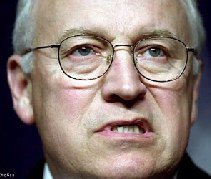 Nicholas Kristof stands a better chance of convincing Condoleeza Rice to pull that corn cob out of her ass than he does getting Dick Cheney to do anything he doesn't want to do. From the moment he refused to reveal the members of his Energy Task Force, Dick has been saying "fuck you" to the American people. You know, those poor suckers who first elected him to Congress and and then paid his salary through enormous government contracts with Halliburton?
Nicholas Kristof stands a better chance of convincing Condoleeza Rice to pull that corn cob out of her ass than he does getting Dick Cheney to do anything he doesn't want to do. From the moment he refused to reveal the members of his Energy Task Force, Dick has been saying "fuck you" to the American people. You know, those poor suckers who first elected him to Congress and and then paid his salary through enormous government contracts with Halliburton? 